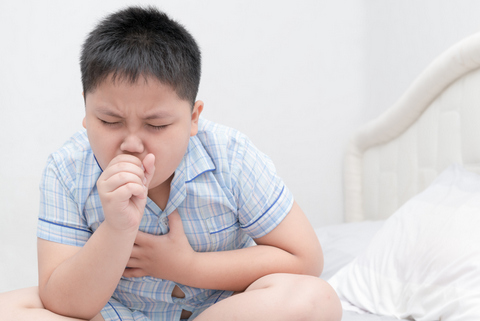
Having a guideline to prepare yourself as the caregiver is undoubtedly helpful. Here are 6 things that help you be prepared if your child has asthma:
The best way to develop an effective treatment plan whenever something happens is to be prepared beforehand with your child’s medical history. As much as your doctor can assess your child’s physical condition, it’s very important for them to know more about the condition.
This means knowing the frequency of your child wheezing episodes, common triggers, number of visits to the doctor, the frequency of acute medication used and the types of preventive medications taken.
Keeping an asthma-diary can help you to identify and monitor the triggers and severity of the asthma episodes.
Having an asthma-friendly home checklist can definitely help to free your home from asthma triggers or allergens to avoid flare-ups. Parents should look carefully around their home for anything that could trigger asthma symptoms, including:
This does not necessarily mean that you’ll have to eliminate all trigger factors from home. However, it is important to identify and avoid excessive exposure to factors that may trigger an asthma attack.
There are many things that parents can do to ensure that their child’s asthma is managed from time to time. This includes some important routine such as:
You and your child’s doctor will need to create an Asthma Action Plan together. This is a detailed plan that includes your child’s medications, asthma symptoms, specific symptoms, physical activity limitations, the course of action if your child does not respond to their regular medications. Emergency phone numbers of the child’s doctor and parents should also be included.
It is important to equip your child’s other caregivers including grandparents, teachers, school nurse, babysitters and even other parents when your child is visiting a friend. Make sure that everyone is informed of your child condition and give them a copy of the asthma action plan. For school children, you need to communicate with schools about their asthma. Knowing how your child’s school has handled asthma episodes in the past is also important. Notify the school administrators if your child is allergic to some foods.
Giving knowledge to your child on the condition that they are suffering from will help to empower them. By the time your child is 5 years old and above, you can start teaching them about asthma and they can be involved in writing their own asthma plan. If your child wants to be involved in sports, be sure to discuss how they can handle asthma before, during, and after exercise.
A study has reported that the majority of mothers with asthmatic children saw themselves as responsible for their child's illness. They believed that their failure to pay attention to the initial symptoms had caused the progression and worsening of the symptoms. This illustrates the emotional burden faced by parents of asthmatic children.
It takes a village to raise a child, even more so when your child is asthmatic. Being vigilant and better prepared can help to control and manage your child’s respiratory illness better.
|
Previous article How to Choose a Nebulizer? |
Next article Asthma Medications for Beginners |